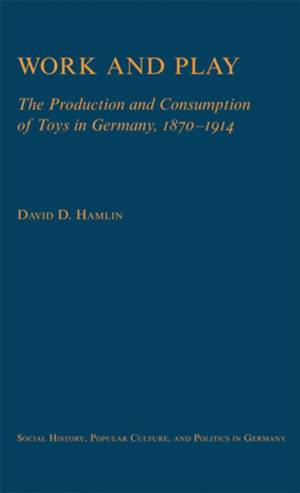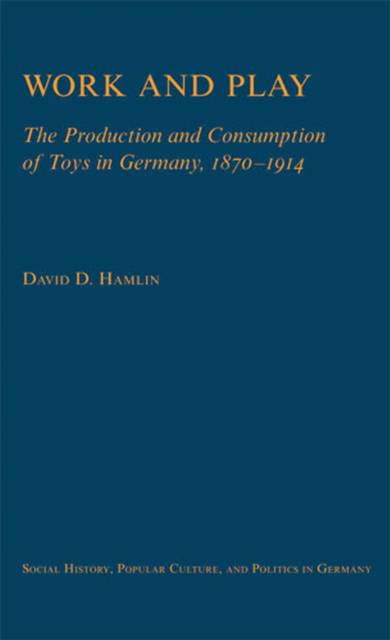
- Retrait gratuit dans votre magasin Club
- 7.000.000 titres dans notre catalogue
- Payer en toute sécurité
- Toujours un magasin près de chez vous
- Retrait gratuit dans votre magasin Club
- 7.000.0000 titres dans notre catalogue
- Payer en toute sécurité
- Toujours un magasin près de chez vous
Description
The development of toys in late nineteenth century Germany represents a perhaps surprising, but nonetheless extremely valuable tool for understanding the influence of consumerism on Wilhelmine society at a time of extreme social transformation. The rapid development of commerce in toys brought to the industry a significant increase in national wealth and power, but toys also became a site for contesting social and cultural problems. Would consumer capitalism lead to greater wealth or more exploitation? Should toys train young children in desirable adult traits or unlock the doors of fantasy? What were the implications for modern individualism and society inherent in these alternatives? Through the lenses of producers, distributors, retailers, consumers, pedagogues as well as cultural and social reformers, Hamlin explores how this new industry helped to lead the way toward German modernity.
"Exciting in the scope of its analytic purview, Work and Play explores not only the traditional business history of the toy industry in the Second Empire but also the cultural history of toys as well as the intellectual debates about the place of play in the cultivation of bourgeois individuals. In each arena, Hamlin makes extremely valuable contributions."
---Andrew Stuart Bergerson, Associate Professor of History at the University of Missouri-Kansas City and author of Ordinary Germans in Extraordinary Times: The Nazi Revolution in Hildesheim
David Hamlin is Assistant Professor of History at Fordham University.
Spécifications
Parties prenantes
- Auteur(s) :
- Editeur:
Contenu
- Nombre de pages :
- 304
- Langue:
- Anglais
- Collection :
Caractéristiques
- EAN:
- 9780472115884
- Date de parution :
- 01-06-07
- Format:
- Livre relié
- Format numérique:
- Genaaid
- Dimensions :
- 165 mm x 233 mm
- Poids :
- 580 g







